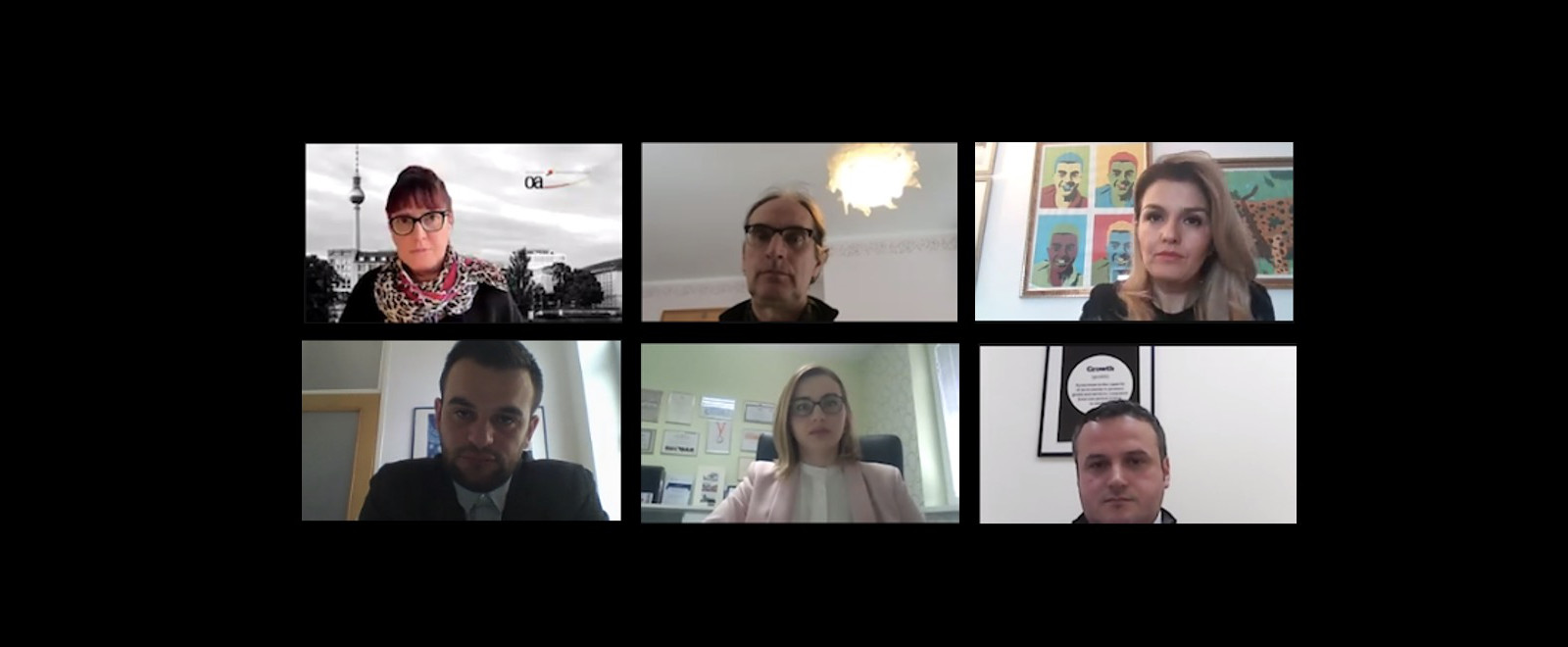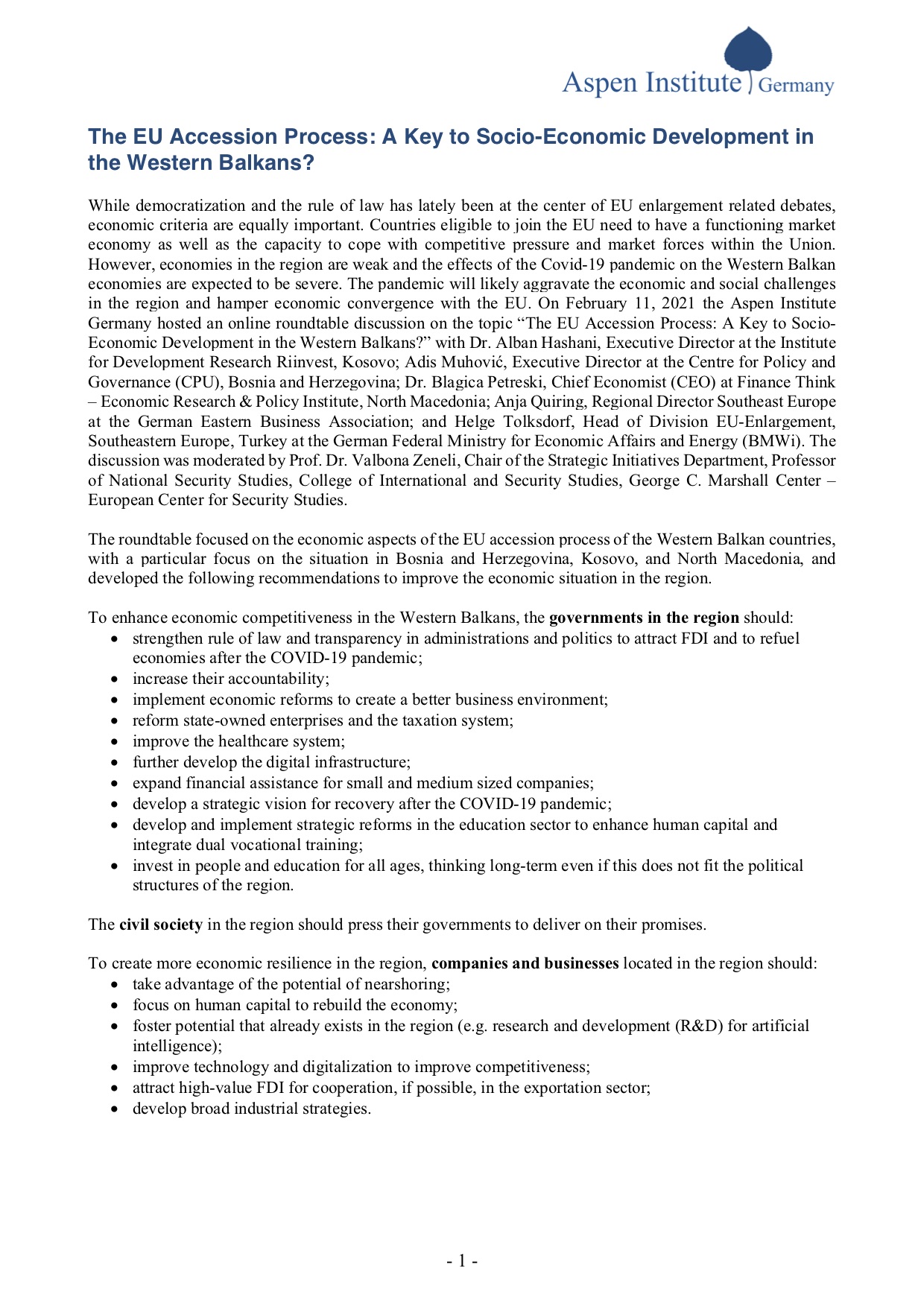- February 11, 2021
- -
- July 27, 2024

On February 11, 2021 the Aspen Institute Germany hosted an online roundtable discussion on the topic “The EU Accession Process: A Key to Socio-Economic Development in the Western Balkans?” with Dr. Alban Hashani, Executive Director at the Institute for Development Research Riinvest, Kosovo; Adis Muhović, Executive Director at the Centre for Policy and Governance (CPU), Bosnia and Herzegovina; Dr. Blagica Petreski, Chief Economist (CEO) at Finance Think – Economic Research & Policy Institute, North Macedonia; Anja Quiring, Regional Director Southeast Europe at the German Eastern Business Association, and Helge Tolksdorf, Head of Division EU-Enlargement, Southeastern Europe, Turkey at the German Federal Ministry for Economic Affairs and Energy (BMWi). The discussion was moderated by Prof. Dr. Valbona Zeneli, Chair of the Strategic Initiatives Department, Professor of National Security Studies, College of International and Security Studies, George C. Marshall Center – European Center for Security Studies.
While democratization and the rule of law has lately been at the center of EU enlargement related debates, economic criteria are equally important and countries eligible to join the EU need to have a functioning market economy as well as the capacity to cope with competitive pressure and market forces within the Union. However, economies in the region are weak and the effects of the Covid-19 pandemic on the Western Balkan economies are expected to be severe. They are likely to aggravate the economic and social challenges in the region and hamper economic convergence with the EU. This roundtable therefore focused on the economic aspects of the EU accession process of the Western Balkan countries, with a particular focus on the situation in Bosnia and Herzegovina, Kosovo, and North Macedonia. Please find below the recommendations developed during the discussion:  The virtual discussion was part of the Aspen Berlin Policy Hub for think tanks from the Western Balkans, a project funded by the Open Society Foundations and the Federal Press Agency.
The virtual discussion was part of the Aspen Berlin Policy Hub for think tanks from the Western Balkans, a project funded by the Open Society Foundations and the Federal Press Agency.


